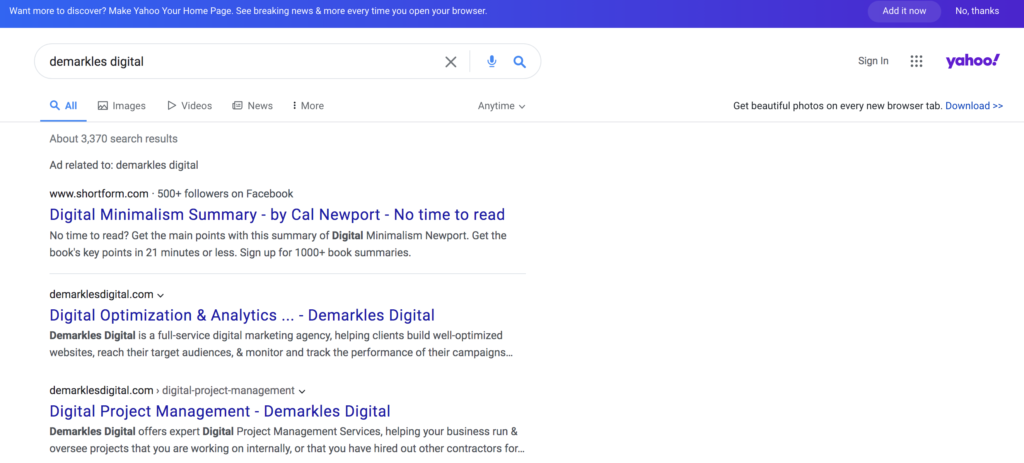Yahoo is a search engine that is now powered by Bing’s search results, after a change made in 2009.
Yahoo!’s index was always unique, in that many of their components of their search directory were housed by other companies, including Google & Inktomi.
Yahoo! search became independent in 2004, until teaming up with Microsoft & Bing’s search results, helping Microsoft search properties handle 24% of all search queries by 2018.

Yahoo! Search Directory’s Beginnings
Yahoo!’s directory was originally searchable in 1995, one year after the original directory of listings was created, making it the first popular search engine on the internet.
Yahoo! had licensed other web crawlers to crawl & gather the data that they relay on their SERPs, focusing more on the directory itself until 2003.
Optimizing Website Content For Yahoo! Search & SEO
Yahoo! Search functions more like an older search engine, with less algorithm weighting inputs than Google, but very similar to Bing.
However, there are some key differences in the approach that will work best for Yahoo! search.
Firstly, whenever using a search engine that brings in less traffic than Google, always check your analytics information to try & figure out who is accessing your content via this medium.
This will enable you to pick the best keywords & content styles that will click with your audience, while using verbiage that they use for their queries.
Traditional keyword research will still be imperative to optimize your site for Yahoo’s search engine.
Using this to create content that is unique, while also using the words that your user’s use for searching will help get your content ahead of the pack, and standing out from the other SERP listings.
This will also help you to attract backlinks, which are an essential ranking factor in any search engine.
Choosing unique keywords that have high levels of user intent, that are not the most commonly used ones may also prove more beneficial on Yahoo! and other engines with less market share than Google.
Keyword stuffing in content is still a “no-no”, but traditional content strategies & scheduling still applies when optimizing your website for Yahoo!
Having fresh content options frequently, that cover a variety of topics using both long & short-tail keywords will help your site be able to stand out from the rest, while covering as much SERP real estate for your relevant queries as possible.